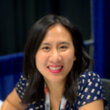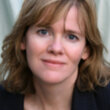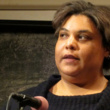Hausfrau
Description
More Details
9781410482167
9780812997545
9780553551617
Excerpt
Similar Titles From NoveList
Similar Authors From NoveList
Published Reviews
Booklist Review
As an American expat in Switzerland, Anna Benz feels lost. Her husband, a successful Swiss banker, is supportive but distant, and her grasp of the language is such that she has few friends beyond her three children and her helpful mother-in-law. Bored and lonely, Anna slips into a string of affairs, first falling in love with a professor visiting from the States, then dulling the pain of his abrupt departure with successive liaisons. German-language class, new friendships, and a Jungian analyst do little to help. Caught in a struggle to find herself and her place before the truth of her dalliances comes to light, Anna is already spiraling out of control when tragedy pushes her over the edge, where she will face the very base reality of the sum of her decisions. Isolated and tormented, Anna shares more than her name with that classic adulteress, Anna Karenina, but Essbaum has given a deft, modern facelift to the timeless story of a troubled marriage and tragic love in this seductive first novel.--Ophoff, Cortney Copyright 2015 Booklist
Publisher's Weekly Review
Over a century after the publication of Madame Bovary and Anna Karenina, poet Essbaum proves in her debut novel that there is still plenty of psychic territory to cover in the story of "a good wife, mostly." But now, more than ever, it is clear that the conflict between the protagonist's desires and her "tightly circumscribed" world is her own doing, and not a result of social limitations. Anna Benz is an American expatriate and mother of three, married to Bruno, a Swiss banker. In her nine years of living in a tidy suburb of Zurich, Anna (whose name is a Tolstoy nod) has never gotten a driver's license, befriended other mothers, or learned Swiss German, the form of German spoken in Switzerland. Essbaum's story opens as Anna attempts to break through her ennui and engage with the world. She starts a course of Jungian analysis with the inimitable Doktor Messerli and finally enrolls in language classes. Still, she's drawn into a number of extramarital affairs that skirt the line between passion and passivity. In Essbaum's capable hands, Anna invites the reader's empathy rather than scorn. The realism of Anna's dilemmas and the precise construction of the novel are marvels of the form, and Essbaum chooses her words carefully. When her teacher lectures her on verb tenses, Anna wonders, "But how often is the past simple? Is the present ever perfect?" This novel is masterly as it moves toward its own inescapable ending, and Anna is likely to provoke strong feelings in readers well after the final page. (Mar.) © Copyright PWxyz, LLC. All rights reserved.
Library Journal Review
[DEBUT]Novels about affectless housewives risking all to indulge in the edgy pleasures of extramarital sex are hardly uncommon, but Anna's story is different, if only for the author's portraiture skills and escalated writing style. What else stands out in this sometimes chilling first novel by award-winning poet Essbaum: the extent of Anna's anomie and will to powerlessness. Having met and married Bruno, a coolly competent Swiss banker who takes her home to Zurich, where they now live with their three children, Anna sleepwalks through life until she's riven by an affair with a visiting MIT professor. Anna's easy fall into sex with strangers and passive acceptance of her husband's casual disregard are traced briefly and unsatisfactorily to a solitary childhood, and though the sex scenes are forceful, this is not a novel about sex but one that uses sex as a means of displaying and studying character. Anna's intense, inconclusive reflections on her behavior, sometimes woven into her study of German grammar, are the most interesting thing about her. Verdict A sharp and exceptionally well-written exploration of one woman's crisis of self that will leave readers unsettled-and perhaps a few unconvinced. [See Prepub Alert, 9/15/14.]-Barbara Hoffert, Library Journal © Copyright 2015. Library Journals LLC, a wholly owned subsidiary of Media Source, Inc. No redistribution permitted.
Kirkus Book Review
Between caring for three children, visiting a Jungian analyst and taking a German class, Anna wouldn't seem to have much time for extramarital liaisons, but like her namesake, Madame Karenina, she manages. Anna, who's American, has lived near Zurich with her Swiss banker husband, Bruno, for nine years yet still can't speak the language. She gets by in elementary German but is barely competent at Schwiizerdutsch, the local variant that "leaps from the back of the throat like an infected tonsil trying to escape." She doesn't have a job or a bank account; her parents are dead; and she has only one friend, another expatriate she doesn't even like very well. Her husband is cold and distant, her mother-in-law "was usually never blatantly unkind." That double negative is vintage Anna, who parses her feelings into ever finer distinctions. A few years ago, she drifted into an affair with another American, who went home without knowing he'd fathered her third child. Now she's studying German, which her analyst suggested as a way to become more connected to the world, though Doktor Messerli surely didn't mean she should jump into bed with a Scotsman she met in class. "Anna loved and didn't love sex. Anna needed and didn't need it. Her relationship with sex was a convoluted partnership that rose from both her passivity and an unassailable desire to be distracted. And wanted." As Anna floats through her life and this novel, taking endless train rides and insomniac walks, the story is interrupted by philosophical conversations with her shrink: "What's the difference between passivity and neutrality?" is a typical gambit. There's plenty of tensionwill Anna get caught?but it's hard to be invested in the life of a woman who doesn't care much about it herself. A smart book that entertains page by page but doesn't add up to anything larger. Copyright Kirkus Reviews, used with permission.
Booklist Reviews
As an American expat in Switzerland, Anna Benz feels lost. Her husband, a successful Swiss banker, is supportive but distant, and her grasp of the language is such that she has few friends beyond her three children and her helpful mother-in-law. Bored and lonely, Anna slips into a string of affairs, first falling in love with a professor visiting from the States, then dulling the pain of his abrupt departure with successive liaisons. German-language class, new friendships, and a Jungian analyst do little to help. Caught in a struggle to find herself and her place before the truth of her dalliances comes to light, Anna is already spiraling out of control when tragedy pushes her over the edge, where she will face the very base reality of the sum of her decisions. Isolated and tormented, Anna shares more than her name with that classic adulteress, Anna Karenina, but Essbaum has given a deft, modern facelift to the timeless story of a troubled marriage and tragic love in this seductive first novel. Copyright 2014 Booklist Reviews.
Library Journal Reviews
An American in her thirties, Anna Benz has a picture-perfect life, with glowing children, a gorgeous house, and a Swiss banker husband. Of course, what looks that good on the outside is often rotten on the inside, and Anna launches a series of affairs. This debut by a recipient of the Bakeless Poetry Prize and two NEA literature fellowships is an in-house favorite.
[Page 60]. (c) Copyright 2014. Library Journals LLC, a wholly owned subsidiary of Media Source, Inc. No redistribution permitted.LJ Express Reviews
[DEBUT]Novels about affectless housewives risking all to indulge in the edgy pleasures of extramarital sex are hardly uncommon, but Anna's story is different, if only for the author's portraiture skills and escalated writing style. What else stands out in this sometimes chilling first novel by award-winning poet Essbaum: the extent of Anna's anomie and will to powerlessness. Having met and married Bruno, a coolly competent Swiss banker who takes her home to Zurich, where they now live with their three children, Anna sleepwalks through life until she's riven by an affair with a visiting MIT professor. Anna's easy fall into sex with strangers and passive acceptance of her husband's casual disregard are traced briefly and unsatisfactorily to a solitary childhood, and though the sex scenes are forceful, this is not a novel about sex but one that uses sex as a means of displaying and studying character. Anna's intense, inconclusive reflections on her behavior, sometimes woven into her study of German grammar, are the most interesting thing about her. Verdict A sharp and exceptionally well-written exploration of one woman's crisis of self that will leave readers unsettled—and perhaps a few unconvinced. [See Prepub Alert, 9/15/14.]—Barbara Hoffert, Library Journal (c) Copyright 2015. Library Journals LLC, a wholly owned subsidiary of Media Source, Inc. No redistribution permitted.
Publishers Weekly Reviews
Over a century after the publication of Madame Bovary and Anna Karenina, poet Essbaum proves in her debut novel that there is still plenty of psychic territory to cover in the story of "a good wife, mostly." But now, more than ever, it is clear that the conflict between the protagonist's desires and her "tightly circumscribed" world is her own doing, and not a result of social limitations. Anna Benz is an American expatriate and mother of three, married to Bruno, a Swiss banker. In her nine years of living in a tidy suburb of Zurich, Anna (whose name is a Tolstoy nod) has never gotten a driver's license, befriended other mothers, or learned Swiss German, the form of German spoken in Switzerland. Essbaum's story opens as Anna attempts to break through her ennui and engage with the world. She starts a course of Jungian analysis with the inimitable Doktor Messerli and finally enrolls in language classes. Still, she's drawn into a number of extramarital affairs that skirt the line between passion and passivity. In Essbaum's capable hands, Anna invites the reader's empathy rather than scorn. The realism of Anna's dilemmas and the precise construction of the novel are marvels of the form, and Essbaum chooses her words carefully. When her teacher lectures her on verb tenses, Anna wonders, "But how often is the past simple? Is the present ever perfect?" This novel is masterly as it moves toward its own inescapable ending, and Anna is likely to provoke strong feelings in readers well after the final page. (Mar.)
[Page ]. Copyright 2014 PWxyz LLC




































